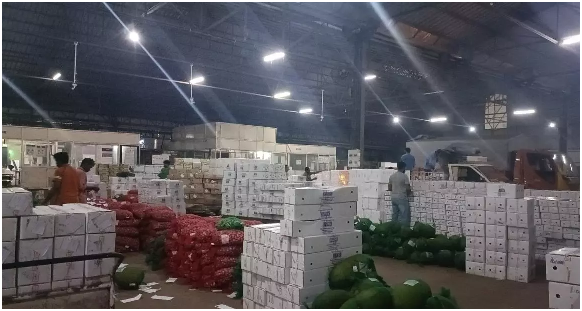
The draft policy
also recommends declaring logistics parks as industrial zones and establishing
a single-window system to approve them.
Kerala is readying policies and infrastructure to tap
the inherent opportunities in the logistics sector, especially given that
operations will soon commence at the strategically located Vizhinjam
International Container Transhipment Terminal. Alongside the International
Container Transhipment Terminal in Kochi, the Vizhinjam terminal holds
potential to turn the state into India’s prime logistics hub, according to
stakeholders in the sector.
Besides allowing industrial land use for logistics
services, it proposes formulating skill development projects in the areas of
storage, transportation, and other related services. It recommends stamp duty
exemption for logistics parks and mini-parks, and high-level panels for coordinating
and approving proposals
“Kerala
consumes more than six per cent of the country’s fast-moving consumer goods.
The government intends to tap this potential through a comprehensive policy,” says Suman
Billa, Principal Secretary, Industries Department.
According to a report by the Kerala State Industrial Development
Corporation (KSIDC), the state’s wealth of natural resources
offers potential for developing niche logistics sectors. Verticals such as cold
chain logistics, agro-processing, spices, handicrafts, coir, and rubber require
specialised logistics and packaging services. It points to the need to explore
new sectors such as e-commerce, express delivery, and reverse logistics. The
adoption of digital technologies and innovations such as AI and blockchain can
enhance logistics efficiency and transparency, it adds.
KSIDC Chairman Paul Antony says Kerala has limitless possibilities in the logistics sector and the
industry players have a big role in tapping it.
Kerala’s long coastline, a string of big and small
ports, 44 rivers flowing from the Western Ghats into the Arabian Sea, and the
vast network of backwaters make it ideal for developing waterways transport on
a large scale. Its four international airports and extensive rail and road
networks promise multimodal connectivity.
The
KSIDC report also mentions potential areas for investment, including a coastal economic zone in the Malabar
region with a focus on logistics, among other sectors; developing inland water
transport and coastal shipping for cheaper and faster movement of cargo and
passengers; and building fishing harbours and fish processing centres to boost
the export potential of marine products.
The state government has invested in building a cold
chain infrastructure for the storage and transport of perishable goods such as
fruits, vegetables, dairy products, and seafood. This investment is crucial in promoting the local economy, as Kerala is
among the country’s leading producers of agricultural and marine products.